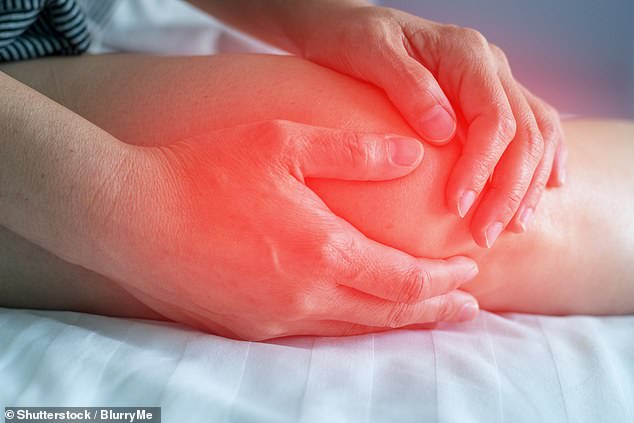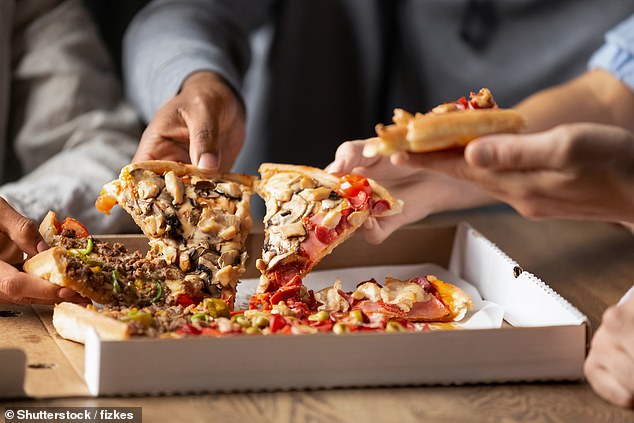I had a successful operation for acid reflux nearly 30 years ago, but I’ve developed bile reflux, which makes me chronically nauseous. For the past five years, I’ve been taking metoclopramide, however I know this can have serious side-effects. Are there any alternatives?
Phil Bufton, Hereford.
Constant nausea can be deeply unpleasant and debilitating, and I think it’s better to tackle this than worry about the potential side-effects of your medication.
The operation you had is called a Nissen fundoplication, which reinforces the valve-like action at the lower end of the oesophagus to stop stomach acid spilling into the gullet, thereby reducing symptoms of heartburn.
Sometimes, after a number of years, the effectiveness of this operation diminishes; any further symptoms can then be relieved with a proton pump inhibitor drug, which suppresses the acid — as you mention in your longer letter, you’re taking pantoprazole.
If symptoms recur despite the medication, this is usually due to reflux of bile, which can cause nausea.
Bile is produced by the liver and secreted into the duodenum (the first part of the small intestine), but in some cases it can pass back up into the stomach and oesophagus. It is not known why this happens. This disrupts peristalsis, where muscle contractions help push food through the digestive tract.

If symptoms recur despite the medication, this is usually due to reflux of bile, which can cause nausea
To manage this, you have been prescribed metoclopramide, which helps restore the correct movement of food by blocking the chemical messenger dopamine in the gut and brain, which in turn also reduces nausea.
It sounds as if this drug has helped, but your concerns about it are not misplaced, as the risk of side-effects increases the longer you take it — metoclopramide is recommended for no more than three months. Common side-effects include restlessness, tightening of muscles in the face and jaw, drowsiness and depression.
You should discuss your misgivings with your GP. If the advice is to stop taking the drug, you should be assessed by a gastroenterologist. Up to 10 per cent of patients need a repeat Nissen fundoplication, but it has a lower success rate than the first operation.
A more suitable procedure may be a Roux-en-Y reconstruction, which re-routes the way the stomach drains into the small intestine. Do mention this to your consultant and if they deem the symptoms suitably severe, this may provide some relief from your nausea.
I’ve had a painful Baker’s cyst on my left leg since last February. A scan and X-ray showed a bit of arthritis in my knee, but my doctor won’t drain the fluid as they say it will come back. I’ve been given exercises and I take co-codamol and use ibuprofen gel. Will the fluid damage my knee?
Mrs A. Wall, Cheshire.
First, let me reassure you that the fluid is not a cause of damage but rather a symptom of it.
Baker’s cysts form swelling-like lumps, which can be up to the size of a halved tennis ball, in the back of the knee. The condition is named after William Baker, the 19th-century surgeon who first identified it.
The swelling is caused by a build-up of synovial fluid, the lubrication found in all the joints in the body.
The excessive production of this fluid in the knee is usually a symptom of inflammatory joint disease or cartilage damage within the knee (it can result from sport, although in most cases, as in yours, it’s the result of arthritis).
An ultrasound scan is used to confirm that the cyst is a fluid-filled space (rather than a growth) and to assess the size. The X-ray is of little value in viewing the cyst itself, but does show any abnormalities in the knee joint — usually indicating that osteoarthritis has worn away the cartilage lining the knee.

The swelling is caused by a build-up of synovial fluid, the lubrication found in all the joints in the body
The swelling is unrelated to the severity of the arthritis, which explains why you have a Baker’s cyst despite having only minimal arthritic damage.
Many specialists suggest that painful cysts can be ‘aspirated’ to remove the fluid — here, under local anaesthetic, a needle is inserted into the cyst and the fluid is drained. This reduces its size as well as the discomfort. A dose of a steroid is then injected into the space to help reduce the risk of the cyst recurring.
However, your specialist has suggested otherwise — possibly because the steroid can affect medications, which you may not have mentioned in your letter, or perhaps they are being cautious.
If there is significant arthritis in the joint, the fluid may well still return, even with a steroid.
Should your symptoms persist or worsen, and your GP still advises against aspiration, physiotherapy to improve the muscle support of your leg may be helpful — something worth discussing with your GP — as well as continuing to take the painkillers and anti-inflammatory gel.
Write to Dr Scurr
Write to Dr Scurr at Good Health, Daily Mail, 2 Derry Street, London W8 5TT or email [email protected] — include your contact details. Dr Scurr cannot enter into personal correspondence.
Replies should be taken in a general context and always consult your own GP with any health worries.
In my view… The dangers of junk food must be taught
The phrase ‘you are what you eat’ has never been more appropriate than it is now. Its first recorded use was in 1825, when the French lawyer and politician Jean Anthelme Brillat-Savarin wrote: ‘Tell me what you eat and I will tell you what you are.’
Some 200 years on, the quality of nutrition across Western civilisation continues to decline, despite increasing wealth, thanks to the drive for ever-cheaper produce — we have been sleepwalking into greater industrialisation of food.
Our diets are increasingly dominated by ultra-processed products packed with fat, sugar, additives, preservatives and flavourings, which in turn create the epidemic of obesity and type 2 diabetes overwhelming us today.
For proof, we need look no further than a study published in June in one of the leading journals of paediatrics. It showed that ultra-processed foods (such as fizzy drinks, mass-produced bread, ready meals, frozen pizzas and cereals) are clearly linked with obesity in childhood.
One in five children consumes almost 80 per cent of their calories from such foods.
It is shocking that neither preventative care in the NHS nor education in schools has paid the least attention to the gathering storm formed by the evolution of poor dietary habits.
What use is free healthcare and the rapid advances in medicine when so little attention has been paid to the damage caused by the junk food we’re eating?
It’s not food — we’re merely consuming chemicals. The clue is in the name. But is Public Health England listening?

Some 200 years on, the quality of nutrition across Western civilisation continues to decline, despite increasing wealth, thanks to the drive for ever-cheaper produce — we have been sleepwalking into greater industrialisation of food
Source link : https://www.dailymail.co.uk/health/article-9898811/What-help-ease-bile-reflux-symptoms-DR-MARTIN-SCURR-answers-health-questions.html











